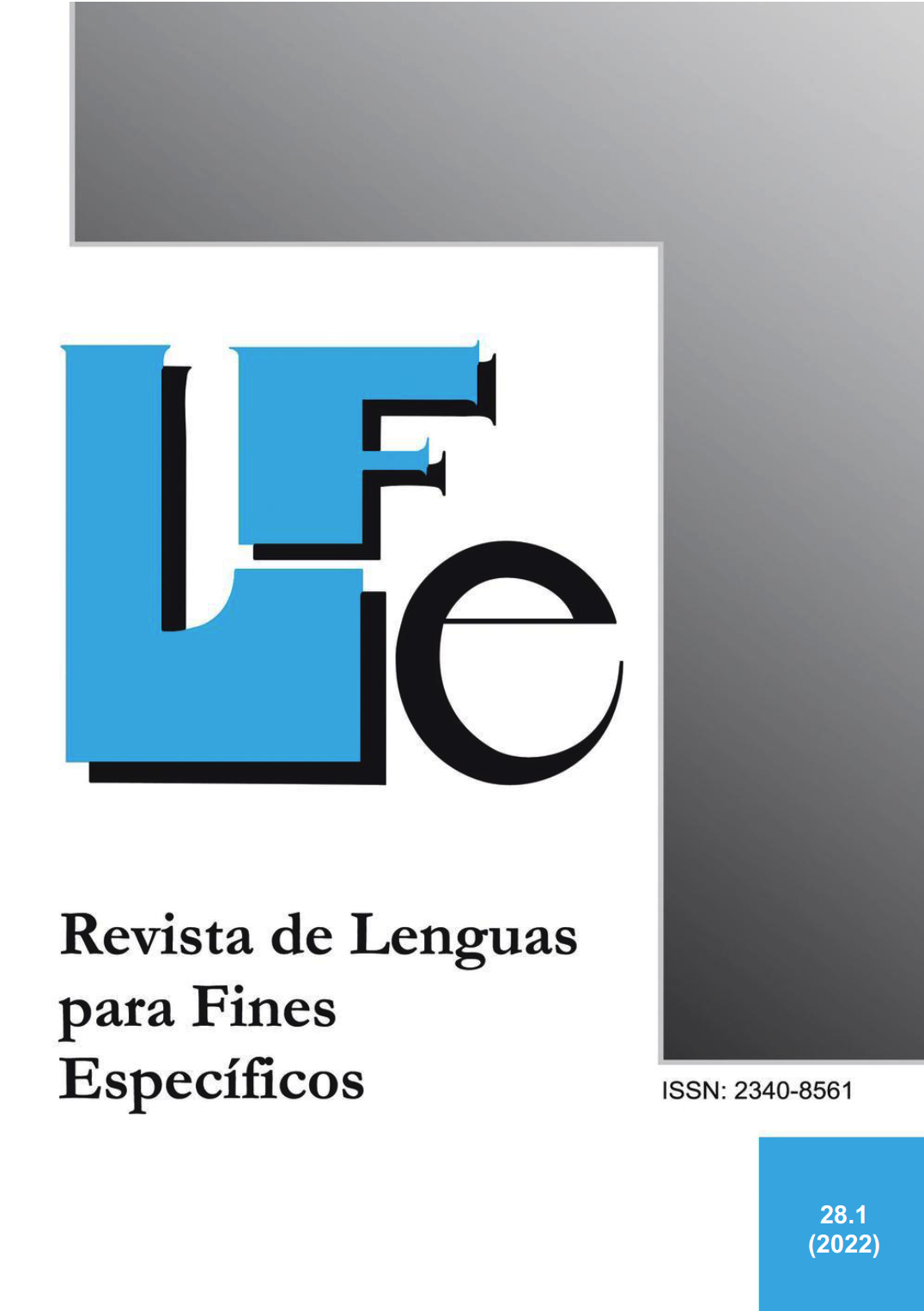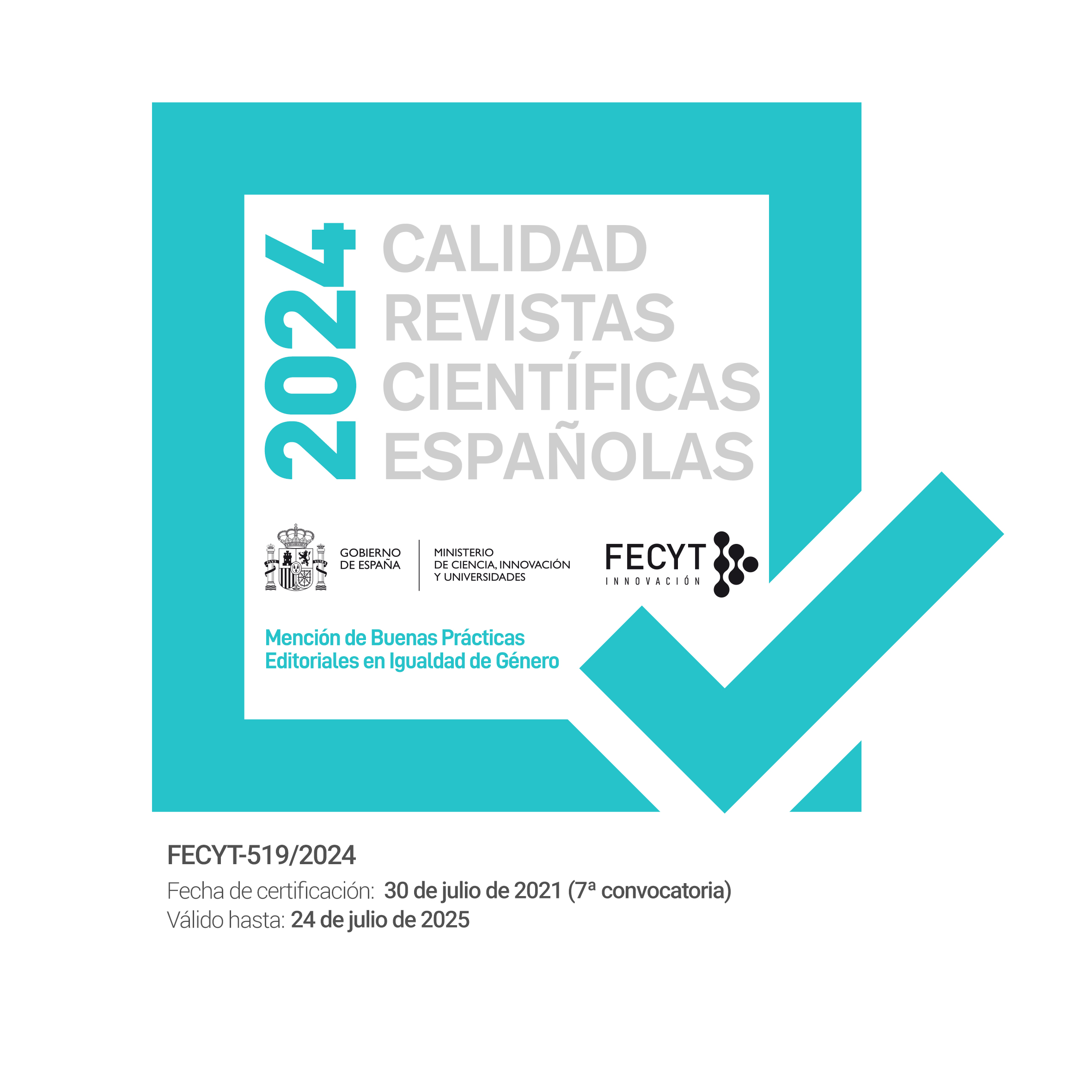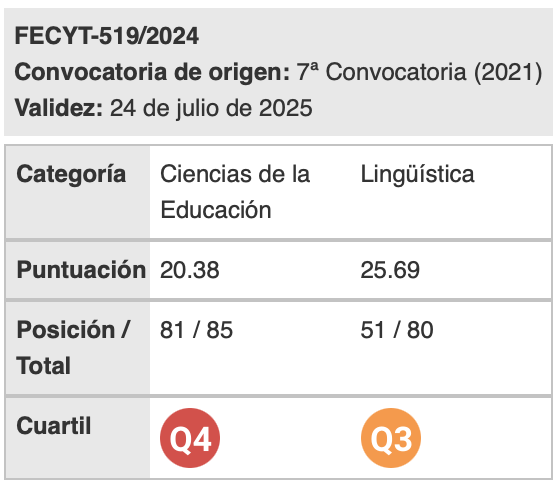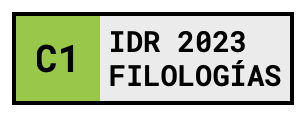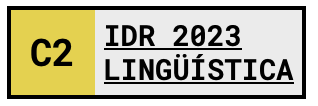Sexist drafting and translation of the Charter of Fundamental Rights of the EU
Palabras clave:
Sexist drafting, translation, Charter of Fundamental Rights of the EUResumen
The Charter of Fundamental Rights of the EU (adopted in 2000 and legally binding since 2009) was the object of criticism during its process of drafting, among other issues, on gender grounds for the use of sexist language, the lack of gender mainstreaming, and not having a clearer stance on the support of equality between women and men.
This article lists the main amendments that were submitted in this respect. The final version of the Charter was modified to eliminate sexist language in the original English text but not in other language versions, as we will see in the analysis.
Based on the European Institute for Gender Equality’s definition of non-sexist use of language as the avoidance of ambiguous masculine gender, we will highlight the appearance of so-called generic masculine in the Charter’s versions in English, Spanish, French, Italian and Portuguese.
Finally, a proposal of non-sexist Spanish translation is included with the hope to demonstrate the functional adequacy, simplicity and need to implement non-sexist translation and drafting of an EU text.
Descargas
Citas
Amnesty International Spain. (2017). Iceberg de la violencia de género. <https://twitter.com/amnistiaespana/status/93408420063810
?lang=es> [4/2/2022].
Bengoechea Bartolomé, Mercedes. (2006). Nombra.en.red. In Ana Méndez Miras & Itxaso Sasiain Villanueva (eds.). En femenino y en masculino (p. 11). Madrid: Instituto de la Mujer. <https://www.inmujeres.gob.es/areasTematicas/educacion/publicaciones/serie
Lenguaje/docs/Nombra_en_red.pdf> [4/2/2022].
Castro Vázquez, Olga & Charlotte Melly (tr.). (2010). Non-sexist translation and/in social change: gender issues in translation. In Julie Boéri & Carol Maier (eds.). Compromiso social y traducción / interpretación (pp. 106-120). Granada: Ecos. https://publications.aston.ac.uk/id/eprint/15885/1/OlgaCastro2010_TI%26SocialActivism_NonSexistTranslation.pdf [4/2/2022].
COE. (1985). Recommendation no. R (85) 2 of the Committee of Ministers to member States on legal protection against sex discrimination. Strasbourg: Council of Europe.
COE. (1990). Recommendation no. R (90) 4 of the Committee of ministers to member states on the elimination of sexism from language. Strasbourg: Council of Europe. <https://rm.coe.int/1680505480> [4/2/2022].
COE. (2003). Balanced participation of women and men in political and public decision-making. Recommendation Rec (2003) 3 of the Committee of Ministers and explanatory memorandum. Strasbourg: Council of Europe. <https://rm.coe.int/1680519084> [4/2/2022].
COE. (2020). Sexism. See it. Name it. Stop it. Human rights channel. Strasbourg: Council of Europe. <https://human-rights-channel.coe.int/stop-sexism-en.html> [4/2/2022].
Coghlan, Niall & Marc Steiert (eds.). (2020). The Charter of Fundamental Rights of the European Union: the 'travaux préparatoires' and selected documents. Florence: European University Institute. <https://hdl.handle.net/1814/68959> [4/2/2022].
Deloche-Gaudez, Florence. (2001). The Convention on a Charter of Fundamental Rights: A method for the future? Paris: Institut Delors. <https://institutdelors.eu/wp-content/uploads/2018/01/etud15-en.pdf> [4/2/2022].
EIGE. (2022). Glossary & thesaurus. Vilnius: European Institute for Gender Equality. <https://eige.europa.eu/thesaurus/overview> [4/2/2022].
EU. (2012a). Carta de los Derechos Fundamentales de la UE. Diario Oficial de la Unión Europea 26.10.2012 C326, 391-407. <https://eur-lex.europa.eu/legal-content/ES/TXT/HTML/?uri=CELEX:12016P/TXT&from=ES> [4/2/2022].
EU. (2012b). Carta dos direitos fundamentais da União Europeia. Jornal Oficial da União Europeia 26.10.2012 C326, 391-407. <https://eur-lex.europa.eu/legal-content/PT/TXT/HTML/?uri=CELEX:12016P/TXT&from=ES> [4/2/2022].
EU. (2012c). Carta dei diritti fondamentali dell'Unione Europea. Gazzetta ufficiale dell’Unione europea 26.10.2012 C326, 391-407. <https://eur-lex.europa.eu/legal-content/IT/TXT/HTML/?uri=CELEX:12016P/TXT&from=ES> [4/2/2022].
EU. (2012d). Charter of fundamental rights of the European Union. Official Journal of the European Union 26.10.2012 C326, 391-407. <https://eur-lex.europa.eu/legal-content/EN/TXT/HTML/?uri=CELEX:12016P/TXT&from=ES> [4/2/2022].
EU. (2012e). Charte des droits fondamentaux de l'Union Européenne. Journal officiel de l’Union européenne 26.10.2012 C326, 391-407. <https://eur-lex.europa.eu/legal-content/FR/TXT/HTML/?uri=CELEX:12016P/TXT&from=ES> [4/2/2022].
European Commission. (2010). Communication from the Commission. A Strengthened Commitment to Equality between Women and Men. A Women’s Charter. <https://eur-lex.europa.eu/legal-content/en/ALL/?uri=CELEX%3A52010DC0078> [4/2/2022].
EWL. (2000a). To the attention of the Members of the Convention responsible for drawing up a draft charter of Fundamental Rights for the European Union. Brussels: European Women’s Lobby. <https://www.womenlobby.org/?lang=en> [4/2/2022].
EWL. (2000b). Women excluded from the EU Charter. Brussels: European Women’s Lobby. <http://www.sos-sexisme.org/English/charte.htm> [4/2/2022].
Guerrina, Roberta. (2003). Gender, Mainstreaming and the EU Charter of Fundamental Rights. Policy and Society, 22(1), 97-115. <https://doi.org/10.1016/S1449-4035(03)70015-0> [4/2/2022].
HCE. (2018). Pour une Constitution garante de l’égalité femmes-hommes. Avis relatif à la révision constitutionnelle. Paris: Haute Conseil à l’Egalité entre les femmes et les hommes. <https://www.haut-conseil-egalite.gouv.fr/IMG/pdf/hce_rapport_constitution-garante-v4.pdf> [4/2/2022].
Hodel, Lea; Magdalena Formanowicz; Sabine Sczesny; Jana Valdrová & Lisa von Stockhausen. (2017). Gender-fair language in job advertisements: A cross-linguistic and cross-cultural analysis. Journal of Cross-Cultural Psychology, 48(3), 384-401.
Koskinen, Kaisa. (2008). Translating institutions: An ethnographic study of EU translation. Manchester: St. Jerome.
LinkedIn. (2019). Language matters: how words impact men and women in the workplace. Sunnyvale: LinkedIn. <https://business.linkedin.com/content/dam/me/business/en-us/talent-solutions-lodestone/body/pdf/Linkedin-Language-Matters-Report-FINAL2.pdf > [4/2/2022].
Muir, Elise. (2019). The essence of the fundamental right to equal treatment: Back to the origins. German Law Journal, 20, 817-839. <https://www.cambridge.org/core/services/aop-cambridge-core/content/view/A16AC8041343D0233E5E11445A771441/S2071
a.pdf/essence_of_the_fundamental_right_to_equal_treatment_back_to_the_origins.pdf> [4/2/2022].
UN. (2019). Guidelines for gender-inclusive language in English. New York: United Nations. <https://www.un.org/en/gender-inclusive-language/guidelines.shtml> [4/2/2022].
Descargas
Publicado
Cómo citar
Número
Sección
Licencia
Aquellos autores/as que tengan publicaciones con esta revista, aceptan los términos siguientes:
- Los autores/as conservarán sus derechos de autor y garantizarán a la revista el derecho de primera publicación de su obra, el cuál estará simultáneamente sujeto a la Licencia de reconocimiento de Creative Commons que permite a terceros compartir la obra siempre que se indique su autor y su primera publicación esta revista.
- Los autores/as podrán adoptar otros acuerdos de licencia no exclusiva de distribución de la versión de la obra publicada (p. ej.: depositarla en un archivo telemático institucional o publicarla en un volumen monográfico) siempre que se indique la publicación inicial en esta revista.
- Se permite y recomienda a los autores/as difundir su obra a través de Internet (p. ej.: en archivos telemáticos institucionales o en su página web) antes y durante el proceso de envío, lo cual puede producir intercambios interesantes y aumentar las citas de la obra publicada. (Véase El efecto del acceso abierto).

Revista de Lenguas para fines específicos is licensed under a Creative Commons Reconocimiento-NoComercial-SinObraDerivada 4.0 Internacional License.

